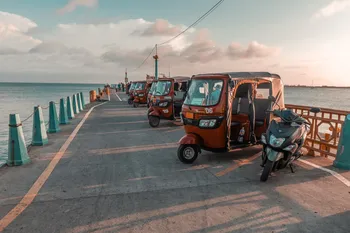
These initiatives not only address pressing infrastructural and environmental challenges but also open up numerous opportunities for businesses and organizations in the respective regions.
ADB Approves Support to Improve Urban Mobility in India
Project Overview
On July 24, 2024, ADB approved a substantial loan of $200 million for the Nagpur Metro Urban Mobility Project. This initiative is designed to expand the metro rail network in Nagpur, a city grappling with increasing urbanization and transportation demands. The project will extend four metro corridors, covering approximately 43.8 kilometers and establishing 32 new stations. The goal is to provide a safe, efficient, and environmentally friendly public transport system that enhances connectivity and supports economic growth in the region.
Background and Context
Nagpur, one of the fastest-growing cities in India, faces significant challenges related to urban mobility. The city’s infrastructure has struggled to keep pace with its rapid population growth, leading to traffic congestion and pollution. ADB's investment aims to alleviate these issues by improving public transport and promoting non-motorized transportation options, such as cycling and e-scooters, thereby enhancing the overall urban environment.
Insights and Opportunities
The Nagpur Metro project is not just a transportation upgrade; it is a catalyst for economic development. The initiative is expected to create jobs, particularly in construction and related sectors, while also fostering entrepreneurship through improved access to markets. Companies involved in infrastructure development, technology solutions for transportation, and sustainable urban planning stand to benefit significantly from this project. Moreover, the project emphasizes gender equality and social inclusion, with plans to train women and disadvantaged groups in skills relevant to the metro operations, thereby creating more inclusive employment opportunities.
$50 Million ADB Grant to Support Climate-Friendly Business Environment in Tajikistan
Project Overview
In a parallel initiative, ADB has approved a $50 million policy-based grant aimed at enhancing Tajikistan's business environment to be more climate-responsive. This program focuses on supporting small and medium-sized enterprises (SMEs) through various reforms that promote digitization, improve infrastructure governance, and increase fiscal transparency.
Background and Context
Tajikistan, while rich in natural resources, faces significant economic challenges, including a need for modernization in its business practices and infrastructure. The ADB's support will help create a more conducive environment for climate-friendly investments, which is crucial for the country’s transition to a green economy. This initiative aligns with global efforts to combat climate change and underscores ADB's commitment to sustainable development in Central Asia.
Insights and Opportunities
The grant will facilitate reforms that prioritize funding for climate-friendly SMEs, particularly those led by women entrepreneurs. This focus on inclusivity and sustainability presents numerous opportunities for businesses involved in green technologies, renewable energy, and sustainable agriculture. Additionally, the program aims to streamline trade processes and enhance public investment management, which can attract foreign investment and foster international trade. Companies looking to enter or expand in the Central Asian market can leverage these reforms to establish a foothold in a rapidly evolving economic landscape.
For businesses and organizations, these initiatives present a wealth of opportunities to engage in transformative projects that align with global sustainability goals. Companies that can adapt to the evolving needs of urban populations and contribute to climate resilience will find themselves at the forefront of this new economic paradigm.








